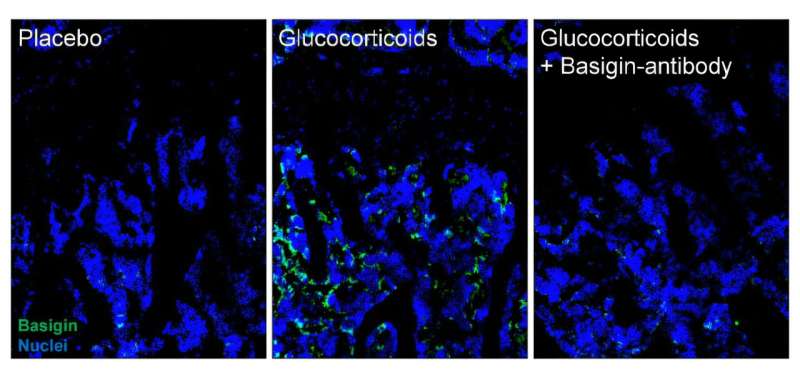The rheumatology and orthopedic researchers discovered that a protein called Basigin, which gets activated in stem cells when people take steroids, is a key reason why bones weaken and blood vessels in bone tissue become abnormal. By blocking Basigin, they were able to protect and even restore bone health in mice, suggesting a promising new treatment path.
Their findings were published in Nature Communications.
“This research is a major step forward in understanding how steroid treatments affect bone health,” said Thomas H. Ambrosi, assistant professor in the Department of Orthopedic Surgery and co-corresponding author of the study. “Identifying Basigin as a driver of bone deterioration opens the door to targeted therapies that could help patients maintain strong, healthy bones—even while undergoing long-term glucocorticoid treatment.”

